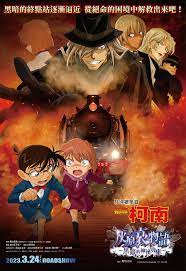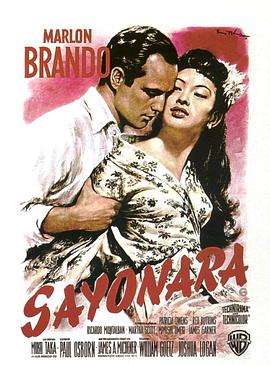欧洲的某个地方-HD中字
欧洲的某个地方-HD中字
- 主演:
- Artúr,Somlay,Miklós,Gábor,Zsuzsa,Bánki
- 导演:
- Radványi,Géza
- 地区:
- 其它
- 时间:
- 2025-07-04 19:49:37
- 年份:
- 1948
剧情:Somewhere in the remote region, the war ends. In the midst of ruined cities and houses in the streets, in rural hamlets, everywhere where people still live, are children who have lost their homes and parents. Abandoned, hungry, and in rags, defenseless and humiliated, they wander through the world. Hunger drives them. Little streams of orphans merge into a river which rushes forward and submerges everything in its path. The children do not know any feeling; they know only the world of their enemies. They fight, steal, struggle for a mouthful of food, and violence is merely a means to get it. A gang led by Cahoun finds a refuge in an abandoned castle and encounters an old composer who has voluntarily retired into solitude from a world of hatred, treason, and crime. How can they find a common ground, how can they become mutual friends The castle becomes their hiding place but possibly it will also be their first home which they may organize and must defend. But even for this, the price will be very high. To this simple story, the journalist, writer, poet, scriptwriter, movie director, and film theoretician Béla Balázs applied many years of experience. He and the director Géza Radványi created a work which opened a new postwar chapter in Hungarian film. Surprisingly, this film has not lost any of its impact over the years, especially on a profound philosophical level. That is to say, it is not merely a movie about war; it is not important in what location and in what period of time it takes place. It is a story outside of time about the joyless fate of children who pay dearly for the cruel war games of adults. At the time it was premiered, the movie was enthusiastically received by the critics. The main roles were taken by streetwise boys of a children's group who created their roles improvisationally in close contact with a few professional actors, and in the children's acting their own fresh experience of war's turmoil appears to be reflected. At the same time, their performance fits admirably into the mosaic of a very complex movie language. Balázs's influence revealed itself, above all, in the introductory sequences an air raid on an amusement park, seen in a montage of dramatic situations evoking the last spasms of war, where, undoubtedly, we discern the influence of classical Soviet cinematography. Shooting, the boy's escape, the locomotive's wheels, the shadows of soldiers with submachine guns, the sound of a whistle—the images are linked together in abrupt sequences in which varying shots and expressive sharp sounds are emphasized. A perfectly planned screenplay avoided all elements of sentimentality, time-worn stereotypes of wronged children, romanticism and cheap simplification. The authors succeeded in bridging the perilous dramatic abyss of the metamorphosis of a children's community. Their telling of the story (the scene of pillaging, the assault on the castle, etc) independently introduced some neorealist elements which, at that time, were being propagated in Italy by De Sica, Rossellini, and other film artists. The rebukes of contemporary critics, who called attention to formalism for its own sake have been forgotten. The masterly art of cameraman Barnabás Hegyi gives vitality to the poetic images. His angle shots of the children, his composition of scenes in the castle interior, are a living document of the times, and underline the atmosphere and the characters of the protagonists. The success of the picture was also enhanced by the musical art of composer Dénes Buday who, in tense situations, inserted the theme of the Marseilaise into the movie's structure, as a motive of community unification, as an expression of friendship and the possibility of understanding. Valahol Europaban is the first significant postwar Hungarian film. It originated in a relaxed atmosphere, replete with joy and euphoria, and it includes these elements in order to demonstrate the strength of humanism, tolerance, and friendship. It represents a general condemnation of war anywhere in the world, in any form.
最新更新

月
宫泽理惠,小田切让,二阶堂富美,矶村勇斗,長井恵里,大塚弘太,笠原秀幸,板谷由夏,茂吕师冈,鹤见辰吾,原日出子,高畑淳子
血战丛林

我们都是动物
Daniel,Landroche,Clint,Napier,Drew,Droege
炼狱(2016)
Chrome,Prince,Cosio,Elora,Españo
富士见二丁目交响乐团
高崎翔太,新井裕介,林明宽,岩田小百合,马场良马,木下凤华,国广富之,宫川一朗太,德井优
冰路营救
连姆·尼森,马库斯·托马斯,劳伦斯·菲什伯恩,安伯·明迪桑德,本杰明·沃克,霍特·麦克卡兰尼,马丁·桑斯梅耶,马特·麦考伊,马特·塞林格,查德·布鲁斯,亚当·哈蒂格,布拉德利·索茨基,马歇尔·威廉斯,加布里埃尔·丹尼尔斯,劳伦·科克伦,阿尔·科利,捷克琳·洛温,艾丽西亚·约翰斯顿,艾伦·默克,达西·菲尔,洛丽·帕帕佐普洛斯,Arne,MacPherson,Paul,Essiembre
名侦探柯南 灰原哀物语~黑铁的神秘列车
高山南,林原惠美,绪方贤一,堀之纪
橘子
休·劳瑞,莉顿·梅斯特,亚当·布罗迪,凯瑟琳·基纳,艾莉森·珍妮,阿莉雅·肖卡特,奥利弗·普莱特
樱花恋
马龙·白兰度,帕特里夏·欧文斯,莱德·巴顿斯,高美以子,里卡多·蒙特尔班,玛莎·斯考特
